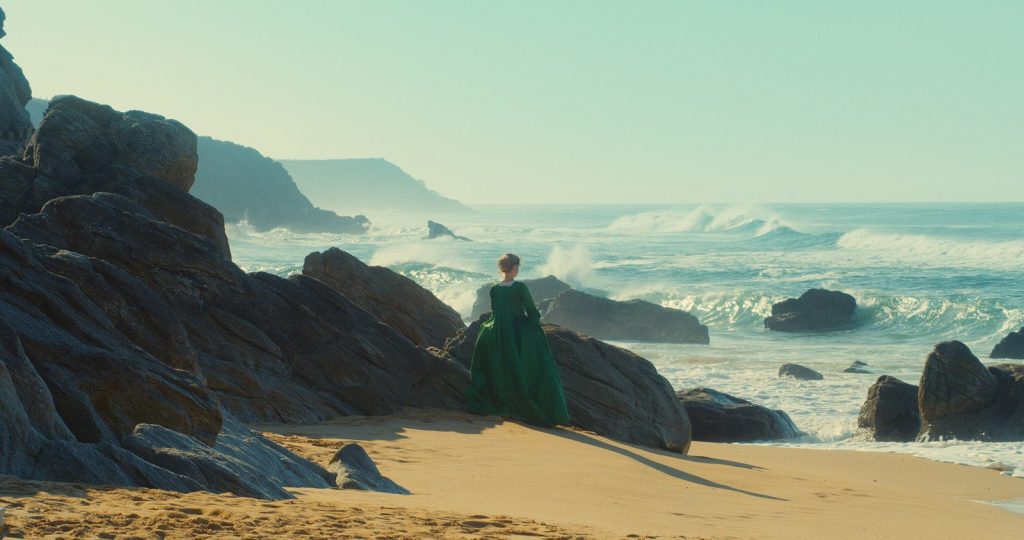When I was preparing and gathering contexts for the screening of Céline Sciamma’s movie I was wondering if relating with a certain distance about feminism – not necessarily only its historical variant – makes Portrait of a Lady on Fire only a brilliant image of feminism and how it changed, or if maybe it is something more: polemics, dialogue, maybe even a manifesto.
Sciamma’s[1] work in a tested, melodramatic spirit narrates a flourishing love relationship (the action takes place in the second half of the 18th century in windy Brittany) between two young women: the aristocrat Héloïse, who was to marry an unknown man, and Marianne, a bourgeois woman[2] who was hired by Héloïse’s mother to secretly paint a portrait that will be later sent to the girl’s future husband. The noblewoman, though distant at first, will begin to become more and more reciprocated with the painter. This short description reflects at least some of the style in which the film was kept. Familiar but still beautiful and able to thrill.
But Portrait of a Lady on Fire is not only a moving, feminine melodrama. It is a film created by a woman, in which women were responsible for the script, photos and editing, and only women appear on the screen, except for short anonymous moments at the beginning and end of the film. Contemporary cinema has just lacked such a movie. On the one hand referring to the approach, one can say academic, and on the other offering a liberating perspective for women not only when it comes to cinema.
Here are some models of female mindsets depicted in the movie. Mother anchored in an oppressive system, yet seeking liberation in her own way. A daughter who dreams and finds freedom in arms of her female lover. A painter who works for artistic recognition, while being aware how difficult it is for a woman among male artists who do not allow a different view of art (view of body and view of a woman) than conventionalized men’s. A maid who struggles with the problem of unwanted pregnancy. So we have a portrait of second wave feminism and suffering that many women go through still to this day.
Something new appears in the relationships between the heroines. A sense of community. Potency of the identity strengthened by that community. Unity.
What is extremely electrifying in Sciamma’s work is her attempt to appropriate the tools of classic cinema, the male gaze, and show a different perspective. This act of creating a portrait – in a voyeuristic sense[3] – becomes the act made by a woman. It is a woman who looks at the other woman. And it is not about taking over the male dominant role. Sciamma goes a step further. She tries to convince the viewer that perhaps a female gaze is not something that one has to look hard for, maybe it has always existed, only hidden[4]. Perhaps it was not Orpheus’s gaze (the Orphic myth repeatedly returned in the film) that condemned his mission to failure, but Euridice’s.
Portrait
of a Lady on Fire is an extremely
satisfying and extremely feminine screening. Its classic design means that
there is a chance that it will move not only those who will definitely be
toughed but also those who does not deserve the Euridice’s gaze.
[1] The director involved in a battle for equality was one of the organizers of the artists’ protest during the Cannes festival, when they demanded, among other postulates, equal wages for men and women of movie industry.
[2] It is possible that this character was inspired by the baroque painter Artemisia Gentileschi.
[3] I am reminding the Susanna motive in painting.
[4] Just like artists who have not been around for a long time – I am referring to Linda Nochlin’s essay, Why Have There Been No Great Women Artists?







